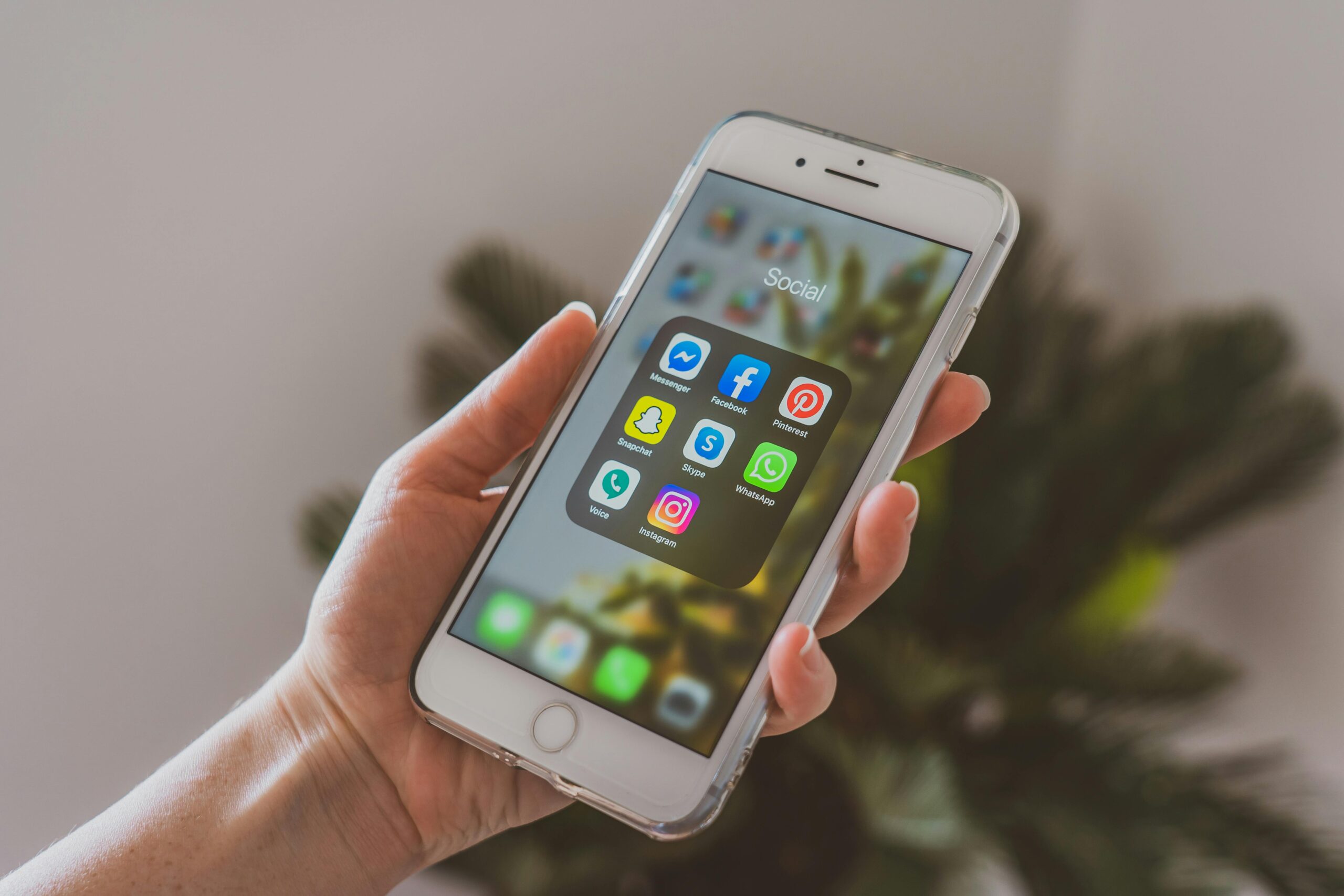The digital revolution has already changed how brands communicate, but now we’ve entered an even more powerful era — one defined by artificial intelligence.

From predicting consumer behavior to personalizing marketing at scale, Brand AI is rewriting the rules of brand strategy. It’s not just a new tool — it’s a new mindset.
In this new era, the brands that stand out aren’t just the loudest or the biggest. They’re the smartest. They’re the ones using AI to understand, connect, and grow in ways that were once impossible.
Let’s dive into how AI is transforming brand strategy, what it means for the future of branding, and how leading companies — including some of Germany’s biggest names — are already redefining the game.
The Rise of Brand AI: Where Data Meets Emotion
Traditional branding has always been about storytelling — about building emotional connections through visuals, values, and voice.
But the modern customer doesn’t just interact with brands through ads or stores. They engage through dozens of digital touchpoints — websites, social media, chatbots, emails, and voice assistants.
That’s where Brand AI comes in.
AI enables brands to analyze vast amounts of customer data, recognize patterns, and create personalized experiences that speak directly to each individual. It’s the bridge between data and emotion — helping brands combine analytical precision with human connection.
How AI Is Redefining Modern Brand Strategy
1. Deep Audience Understanding
In traditional branding, audience research often relied on surveys or demographic data. Now, AI-powered analytics gives brands real-time insight into customer behavior, preferences, and emotions.
Machine learning algorithms can analyze everything from search behavior and social media conversations to purchasing patterns. This means brands can predict what customers want — before they even say it.
For example, AI tools can identify which emotions drive customer loyalty or what time of day audiences are most engaged. This data helps marketers craft brand strategies that resonate emotionally and practically.
2. Personalization at Scale
One of the biggest advantages of Brand AI is its ability to personalize experiences on a massive scale.
AI can automatically tailor brand messages, visuals, and recommendations to individual preferences — something no human team could ever achieve manually.
Whether it’s sending personalized emails, customizing website experiences, or creating dynamic ad content, AI ensures each customer feels seen and valued.
That level of personalization builds trust — and trust builds brands.
3. Smarter Brand Storytelling
Storytelling is the heart of branding. But AI is making it more precise, data-driven, and measurable.
AI tools can analyze which stories resonate most with audiences, helping marketers fine-tune content strategy. For instance, AI can assess emotional reactions to video ads or social campaigns to identify what tone or visuals evoke the strongest connection.
With AI-driven insights, brands can tell stories that don’t just sound good — they feel right to the audience.
4. Predictive Branding and Trend Forecasting
AI doesn’t just help brands understand the present — it helps them predict the future.
Predictive analytics allow marketers to spot emerging trends, anticipate customer needs, and adjust branding strategies before competitors catch up.
For example, an AI system can detect rising interest in sustainability or inclusivity from online conversations, prompting a brand to align its messaging accordingly.
That agility gives brands an enormous competitive edge.
5. Strengthening Brand Consistency
Consistency builds recognition, and recognition builds trust.
AI tools like natural language processing and machine learning help maintain a unified brand voice across every channel — from social media to chatbots to product descriptions.
Imagine every piece of communication, regardless of platform or region, reflecting the same tone, values, and personality. Brand AI ensures your brand feels cohesive, no matter where or how customers engage with it.
6. Customer Engagement Through AI Chatbots
AI chatbots are more than just automated customer service — they’re brand ambassadors.
Today’s AI assistants are emotionally intelligent and capable of delivering personalized, on-brand conversations. They help brands communicate consistently, efficiently, and empathetically.
A well-designed chatbot doesn’t just solve problems — it tells your brand story one message at a time.
For example, BMW’s in-car assistant and Adidas’ digital concierge (featured below) both embody their brand personalities through voice, tone, and behavior.
Case Study 1: BMW — Humanizing Luxury with Brand AI
BMW has always stood for innovation and performance, and its branding now extends far beyond vehicles. With its BMW Intelligent Personal Assistant, the company has transformed driving into a conversational experience.
Drivers can say, “Hey BMW, I’m cold,” and the car will automatically adjust the temperature. The AI doesn’t just follow commands — it learns preferences over time, remembers routes, and even adopts a tone that reflects the BMW brand’s luxury and sophistication.
This is Brand AI in action: creating emotional connections through intelligent, interactive technology.
BMW’s voice assistant has become an extension of the brand’s identity — sleek, smart, and intuitive — making the user feel both understood and empowered.
Through AI, BMW maintains its position as a leader in innovation while humanizing the luxury experience.
Case Study 2: Adidas — Personalization as a Brand Strategy
Global sportswear icon Adidas, headquartered in Germany, has leveraged AI-powered branding to redefine customer engagement.
Adidas uses AI and machine learning to analyze consumer data — from purchase behavior to social trends — allowing it to predict what products will appeal to different segments.
Their AI-driven “Creators Club” loyalty program personalizes rewards, product suggestions, and campaigns based on each member’s activity. Customers receive messages that reflect their lifestyle — whether they’re runners, football fans, or streetwear lovers.
Additionally, Adidas has experimented with AI-powered design tools that generate sneaker concepts based on real-time fashion data and user feedback.
This approach perfectly aligns with Adidas’ brand promise: “Through sport, we have the power to change lives.”
By using Brand AI, Adidas transforms that promise into action — making every customer feel like a part of something bigger.
7. AI in Brand Design and Visual Identity
AI is also revolutionizing visual branding.
From logo generation to color palette optimization, AI tools can analyze visual trends and suggest designs that resonate with specific audiences.
Brands can now use AI platforms to create designs that not only look appealing but also align psychologically with target audience emotions.
For instance, AI can determine which color schemes generate the highest engagement or which typography reflects a brand’s personality best.
This blend of creativity and data-driven insight helps brands maintain aesthetics that feel both fresh and consistent.
8. Measuring Brand Performance in Real-Time
Traditional brand tracking took weeks or months to deliver results. With AI analytics, brand performance can be monitored instantly.
AI can measure customer sentiment across social media, forums, and review platforms in real-time. This allows brands to react immediately to feedback, trends, or crises.
It’s not just about knowing what people think of your brand — it’s about understanding why they feel that way.
These insights help refine campaigns, messaging, and even product development, making your brand more responsive and resilient.
9. Ethical Branding and Responsible AI
As Brand AI becomes more powerful, ethical branding takes center stage.
Consumers expect brands to use AI responsibly — respecting privacy, avoiding manipulation, and maintaining transparency.
The most successful brands will be those that use AI not just to sell, but to serve — creating meaningful, ethical connections that enhance human lives.
For modern branding, empathy is as important as efficiency.
10. The Future of Brand Strategy: Human + AI Collaboration
AI will never replace human creativity — it amplifies it.
The strongest brand strategies of the future will be built on collaboration between humans and AI:
- AI provides data-driven insights.
- Humans bring emotion, imagination, and ethics.
This balance will define the next generation of brand success.
Imagine brand campaigns that adapt in real-time to audience reactions. Logos that evolve with customer sentiment. Marketing that feels so personal, it’s indistinguishable from conversation.
That’s not science fiction — it’s the future of branding powered by AI.
Why Every Brand Strategist Needs to Embrace Brand AI
If your brand isn’t leveraging AI yet, it’s not just behind — it’s invisible.
Customers expect personalization, speed, and authenticity. AI gives brands the tools to deliver all three.
From startups to global corporations, Brand AI empowers strategists to:
- Build emotional connections based on real data
- Predict and adapt to market changes
- Maintain brand consistency across platforms
- Create meaningful, personalized experiences at scale
In short, AI doesn’t replace branding — it redefines it.
The brands that master AI today will own the conversations of tomorrow.
Conclusion
The age of Brand AI is here — and it’s transforming branding from an art of expression into a science of connection.
In the past, branding was about logos, slogans, and campaigns. Today, it’s about intelligent systems that learn, adapt, and connect emotionally with millions of individuals simultaneously.
From BMW’s conversational assistant to Adidas’ predictive personalization, AI is helping brands become more human, not less.
The brands that understand this shift — that blend data with empathy, automation with authenticity — will shape the future of branding in the AI era.


